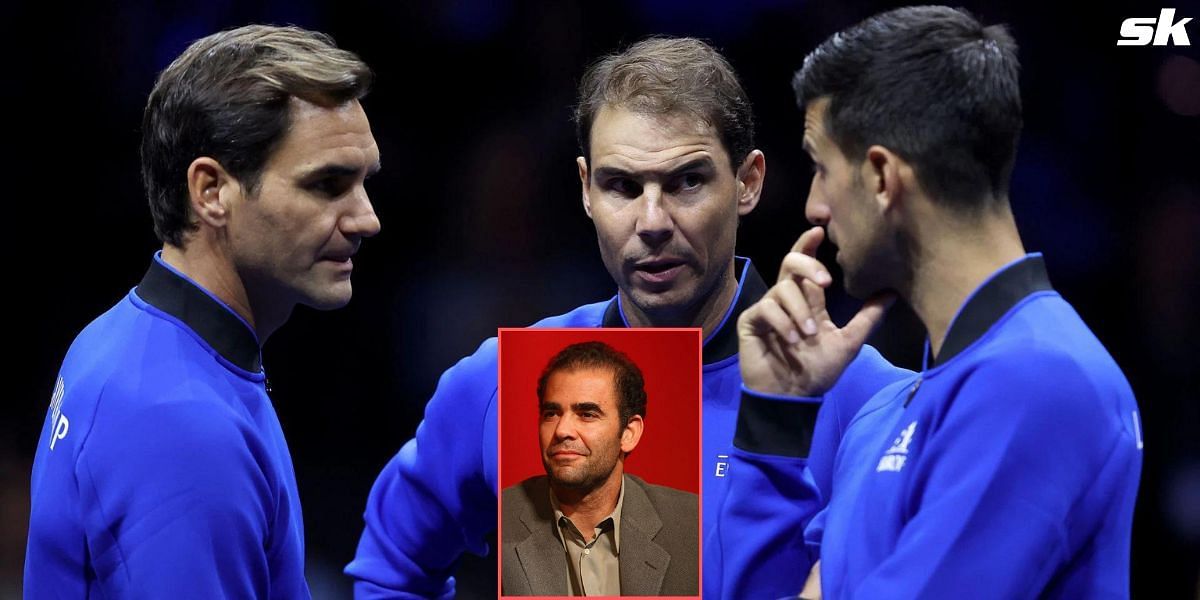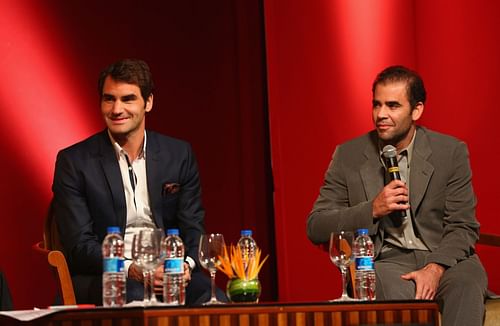
"Pete Sampras gets incorrectly overlooked" - Leading tennis journalists discuss American's legacy in light of the Federer-Nadal-Djokovic era
Pete Sampras' achievements and tennis legacy have been unfairly overlooked for the better part of the last two decades, according to leading tennis journalists Brett Haber and David Beilinson. Haber argued that the American tennis legend's achievements are underrated in comparison to Roger Federer, Rafael Nadal, and Novak Djokovic, particularly given the big differences in the eras in which Sampras and the Big 3 peaked.
The last 15-18 years have been dominated by the Big 3 - Federer, Nadal, and Djokovic - and they have distanced themselves in the 'GOAT debate' mainly due to the fact that they have comfortably surpassed Sampras' previously-held record of 14 Grand Slam singles titles.
While Haber and Beilinson highlighted that the achievements of Federer, Nadal, and Djokovic are quite incredible, they feel Pete Sampras deserves more praise than he gets in the GOAT debate dominated by the Big 3.
"I think Pete gets incorrectly overlooked now," Brett Haber said during a recent chat with fellow tennis journalists David Beilinson and Steve Flink on the Court-Side with Beilinson Tennis podcast.
"In the greatness of this Big 3, Pete has gotten overlooked quite a bit just because of what these three guys have done, which is incredible," Beilinson stated.
Sampras retired in 2003 but last played in 2002 and held the all-time record for men's singles Grand Slam titles (14) with a victory at the US Open. None of the Big 3 had won a Major until then. Federer became the first of the Big 3 to win a Major title in 2003 at Wimbledon.
Brett Haber highlights why Pete Sampras' achievements should not be overlooked compared to Federer-Nadal-Djokovic

Pete Sampras won his 14th and final Grand Slam singles title at the 2002 US Open, over two years after winning his 13th at Wimbledon in 2000. In the first couple of years following the turn of the century, the tennis tour saw big changes in terms of the playing surfaces and balls used at most tournaments, particularly the Grand Slams, making them more similar than ever before and forcing players to make significant adjustments.
Arguing in defense of Sampras, Haber highlighted that the said development contributed to Sampras' drought at the Grand Slams between 2000-2002.
"That (gap between Sampras' 13th and 14th Grand Slam titles) was right around the time when the balls and surfaces were starting to change," Haber explained. "The balls at Wimbledon changed, the grass got a little taller, the clay at Roland Garros started to get a little faster. All the three primary surfaces started to resemble each other and resembled each other more than they ever had in the past."
He further questioned whether Nadal would have won Wimbledon twice if the courts had not gotten relatively slower and whether Federer would have won the French Open had the courts there not gotten relatively faster. Haber further opined that the number of Grand Slam titles won is an unfair measure of comparison in the GOAT debate.
"What I would say in defense of people like Pete Sampras, just to defend his number of 14 and their (Big 3's) number of 21, 22, or whatever they end up being, I think you can rightly ask the question, does Rafa win Wimbledon twice if the grass played like it did 25 years ago? Does Roger win Roland Garros?" Haber said. "I don't know that it's fair to measure the Major totals, the way the Majors are set up compared to the way they used to be set up."